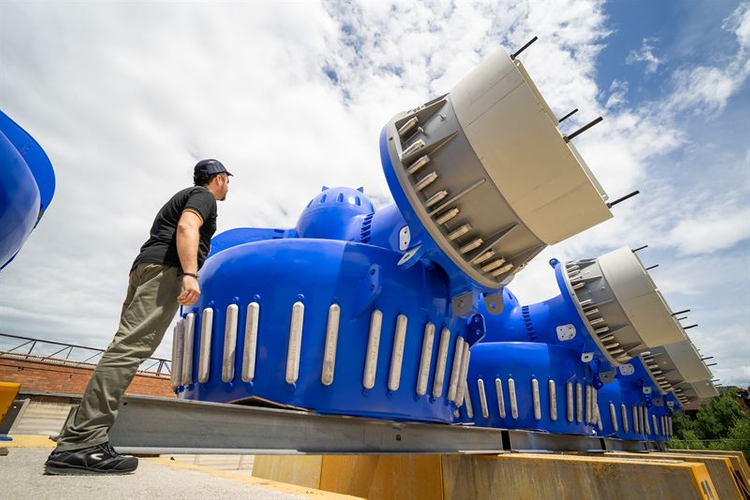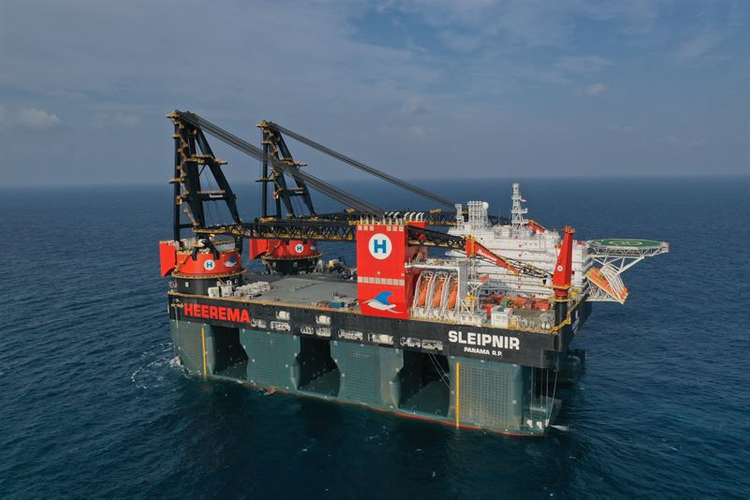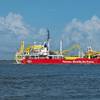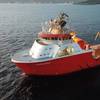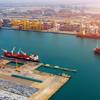Wärtsilä Thrusters on Sea Trials for Large SSCV
Performance of the propulsion solutions supplied by the technology group Wärtsilä exceeded the design specification and contributed to the success of the sea trials for the world’s largest semi-submersible crane vessel (SSCV).
The ‘Sleipnir’ was built at Sembcorp Marine’s Tuas Boulevard Yard in Singapore for the Dutch offshore contractor Heerema Offshore Services (HOS). It was delivered from the yard in July.
The huge vessel is designed for heavy lifting operations and is fitted with two cranes, each with a lifting capacity of 10,000 metric tonnes. The reinforced deck area measures 180 meters by 98 meters. Dynamic positioning is critical to its operations and to ensure this, Wärtsilä developed specifically for this project four 5500 kW forward retractable WST-65RU thrusters that are the world’s largest retractable thrusters ever made. They feature a unique combination of retractable and underwater mountable functionality. The thrusters installed at the aft of the vessel are 5500 kW Wärtsilä WST-65U underwater mountable steerable thrusters.
The underwater demounting capability of all eight thrusters means that neither dry docking, nor the use of a habitat is necessary should the thrusters need to be exchanged. They are equipped with Wärtsilä anti-pollution face type shaft seals, which have been selected primarily because of the challenging environments in which the thrusters will operate. The outboard parts of the thrusters are completely interchangeable.
In addition to the thrusters, Wärtsilä also supplied auxiliaries for steering and lubrication, the control units, and Wärtsilä’s comprehensive Propulsion Condition Monitoring Service (PCMS).





